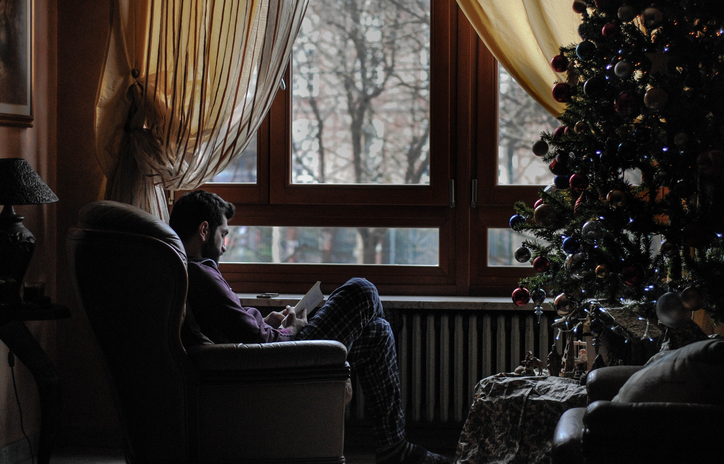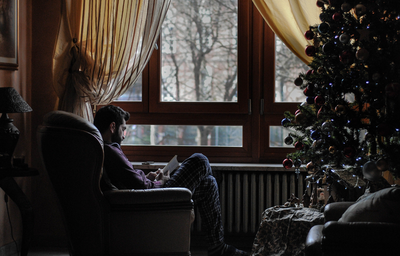Advocacy groups have seen an increase in calls regarding over 70s’ mental health during the pandemic, which is a matter of concern as Christmas approaches, writes Róisín Butler
The easing of Level 5 restrictions for Christmas comes as both a welcome relief and a cause of concern for those most susceptible to coronavirus. Older people, having been subject to a rigorous cocooning period during the first lockdown, might eagerly be looking forward to increased socialisation over the coming weeks, while also being a source of significant anxiety.
The isolation faced at Christmas time has been tackled in previous years through volunteering efforts and awareness campaigns run by organisations such as Alone and Age Action Ireland, but the challenges brought by COVID-19 have resulted in these groups adapting to a new and restrictive environment.
Fergal Graham from Sage Advocacy, an awareness group focused on supporting vulnerable adults and older people in Ireland, remarks that families with older relatives are turning to them for clarity on how they can safely see their family members this year, particularly those who no longer live independently at home.
“The restrictions on visits to nursing homes have been a particular source of concern this year and we would receive many queries around the guidance that is in place in relation to visits to residential care facilities,” he says.
Sage Advocacy’s swift response was to set up a forum for family members who have relatives in nursing homes, ensuring that general concerns over family visits to those in residential care, particularly over Christmas, enter the public domain.
Despite the frustrations facing older people this year, groups like Alone are attempting to connect older people with those outside of their bubble through the power of technology.
Thanks to donations from Vodafone, the group has to date distributed 484 smartphones to vulnerable older adults facing social isolation, and hope to provide more over the month of
The over 70s were the main focus of a report conducted by The Irish Longitudinal Study of Ageing, (TILDA) which, in collaboration with Alone Ireland, looked at the impact COVID-19 has had on older people’s general mental wellbeing. One of its key findings was that most participants had good social interactions prior to March, but these have unsurprisingly dwindled since.
An approximate 75 per cent of all callers who rang Alone from the onset of the pandemic lived alone. Interestingly, loneliness and isolation due to COVID-19 was the second most common concern held by callers, while physical health during COVID-19 was cited as the most prevalent worry.
Many individuals reported having stopped engaging with health services at the onset of lockdown; others mentioned that they had fallen at home but did not seek medical treatment due to fears they would contract the virus in hospital.
Many advocacy groups such as Sage encourage those wanting to help older people in their local area this Christmas to contact their organisation for advice.
“The most important thing anyone can do is be aware of the older people in their community and take the time to reach out, check in and ask how they are,” says Fergal.
He also adds that shopping on older people’s behalf during the Christmas period is a goodwill gesture many will appreciate, as the appeal of rushing around a frenzied grocery store in the coming weeks is understandably slim for those most vulnerable to infection.
Sage Advocacy can be contacted through their Rapid Response Service at 18 -50-71-94-00 and Alone through their helpline at 0818-222-024 for those seeking further information or support.



